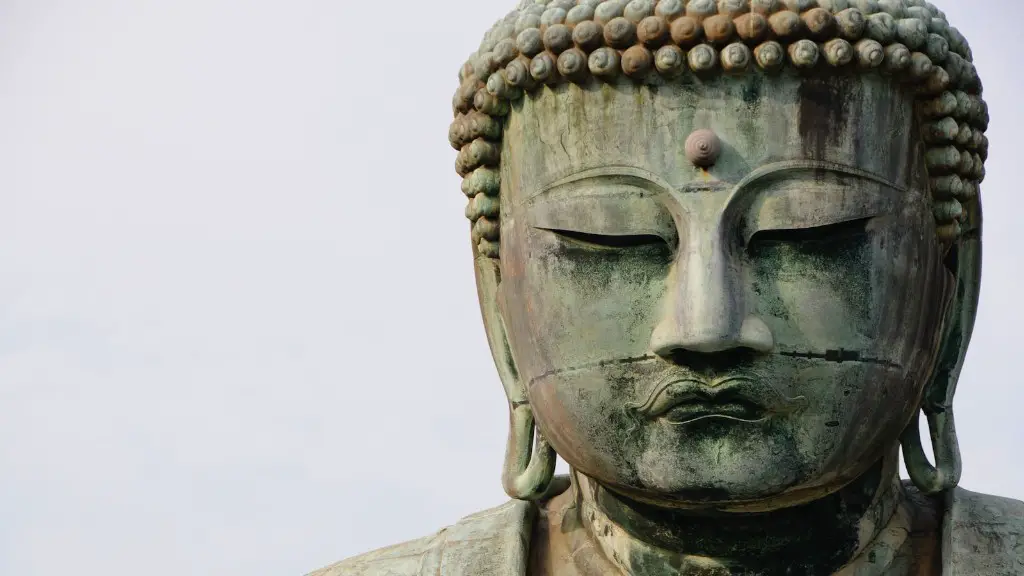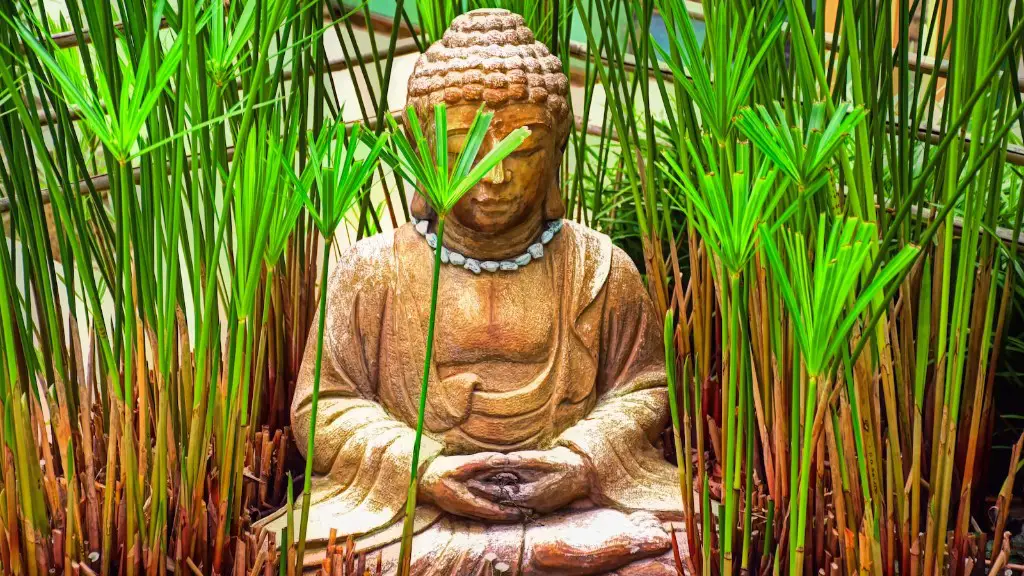Buddhism teaches that the way to end suffering is to let go of attachment to the things of this world. Christianity teaches that the way to end suffering is through faith in Jesus Christ. At first glance, it might seem that these two beliefs are incompatible. However, many people have found that it is possible to practice both Christianity and Buddhism.
There are a few key areas where Christianity and Buddhism intersect. Both traditions teach that it is important to live in the present moment. Both also emphasize the importance of compassion and helping others. By focusing on these shared values, it is possible for Christians and Buddhists to coexist peacefully.
Yes, Christianity and Buddhism can coexist. Both religions have different beliefs and practices, but they can exist together peacefully.
Can you believe in Christianity and Buddhism at the same time?
The meeting between the Dalai Lama and Lawrence Freeman was a dialogue about the possibility of one person being a Christian and a Buddhist. Both stated categorically that it is not possible for one person to be a Christian and a Buddhist. The Dalai Lama said that if someone is a Christian, then they should be a good Christian, and if someone is a Buddhist, then they should be a good Buddhist. Lawrence Freeman said that it is possible to have a Christian meditation practice and to also be a Buddhist, but it is not possible to be a Christian and a Buddhist.
Buddhism and Christianity are two of the world’s major religions. While there are some similarities between the two, there are also significant differences.
One significant difference is that Christianity is monotheistic and relies on a God as a Creator, while Buddhism is generally non-theistic and does not believe in a Creator God. This leads to different views on the nature of reality and the role of humans in the world.
Christians believe that God created the world and that humans are created in His image. Therefore, humans have a special relationship with God and are responsible for living according to His will. Buddhists, on the other hand, do not believe in a Creator God. They see reality as being in a state of constant change, with no permanent underlying reality. humans are seen as just another part of this ever-changing reality, and so are not responsible for anything beyond their own actions.
Another difference between Buddhism and Christianity is that Christians believe in an afterlife, while Buddhists do not. Christians believe that after we die, we will be judged by God and either sent to heaven or hell. Buddhists believe that after we die, we are reborn into another life, and our actions in this life determine our future lives.
Are Buddhists allowed to believe in God
Buddhism is a religion that does not believe in any kind of deity or god. Instead, Buddhists believe in a path towards enlightenment. There are supernatural figures who can help or hinder people on this path, but ultimately it is up to the individual to achieve enlightenment.
There is some historical evidence that Jesus may have known about Buddhism, as both he and it were in Judea during the same time. However, it is also possible that Jesus was unaware of Buddhism, as there is no direct evidence that he had any knowledge of it.
What religion is most similar to Buddhism?
Hinduism is the world’s oldest religion, and it has greatly influenced Buddhism. Both religions originated in India and have shared the country and its culture for centuries. While there are many similarities between the two faiths, there are also significant differences. For example, Hinduism venerates many gods and goddesses, while Buddhism focuses on the teachings of the Buddha. Hinduism also has a caste system, while Buddhism does not. Despite their differences, both religions have had a profound impact on each other and on the world.
In Buddhism, the concept of punishment or reward is non-existent. There is no divine being who decides who goes to hell or heaven. The only thing that exists is the illusory results of our thought, words and deeds, which we call karma.
Why do Buddhist not believe in god?
Buddhism is a tradition focused on achieving spiritual liberation through personal effort and understanding. The Buddha himself rejected the idea of a creator god, instead teaching that humans have the potential to achieve enlightenment through their own efforts. Buddhist philosophers have further argued that belief in an eternal god is actually a distraction from the path to enlightenment. As such, Buddhism is not a theistic religion, but rather a faith centered on each individual’s journey to spiritual understanding.
There is a common misconception that Buddhism is incompatible with science and reason. However, this is not the case. Buddhism is actually a very rational and scientific religion. For example, the Buddha taught that everything is interdependent and constantly changing. This is a principle that is backed up by modern physics. Buddhism also teaches the importance of mindfulness and meditation, which have been shown to be effective in treating conditions like anxiety and depression. So, it is clear that Buddhism is compatible with science and reason.
Do Buddhists celebrate Christmas
Despite what many people believe, many Buddhists do participate in the holiday season. In fact, among Asian American Buddhists, three-quarters celebrate Christmas. Additionally, on Dec 8, some Buddhists also observe Bodhi Day, which marks when the Buddha reached enlightenment. This shows that Buddhists can participate in and enjoy the holiday season just like anyone else.
From a Buddhist perspective, death is not seen as an end, but rather as a natural part of the continuum of life. The spirit is believed to continue on after death and may be reborn into another body. Death can be seen as an opportunity for liberation from the cycle of life, death and rebirth.
What is the Buddhist name for god?
The three Buddhist deities Vajrapāṇi, Mañjuśrī and Avalokiteśvara are important figures in the Buddhist tradition. Each of them represents different aspects of the Buddha’s teachings. Vajrapāṇi is the Buddha’s chief attendant and is shown holding a vajra, or thunderbolt. Mañjuśrī is the embodiment of wisdom and is often shown holding a sword. Avalokiteśvara is the Buddha of compassion and is often shown with his hands in the ‘karana mudra’, or gesture of compassion.
Yes, Jesus was definitely a Jew! He was born to a Jewish mother in Galilee, which was a Jewish area of the world. All of His friends, associates, disciples, etc. were also Jews. He regularly worshipped in Jewish communal worship (synagogues).
Did Jesus and Buddha live at the same time
The book “The Heart of Christianity” by Marcus Borg raises the fascinating question: How could Jesus, living 500 years after Buddha and 3,000 miles away, embody teachings so similar in nature to his predecessor? Borg said some historians believe that Buddhist principles had filtered through the Roman Empire by the time of Jesus.
It is indeed fascinating to think about how Jesus could have been influenced by Buddhist teachings, given the time and geographical distance between them. It is possible that Buddhist principles had already begun to spread through the Roman Empire by the time of Jesus, and that he was exposed to them in his own life. Whatever the case may be, it is clear that Jesus and Buddha shared many important ideas, and that their teachings have had a profound impact on millions of people around the world.
The Buddha was a unique figure among the founders of the world’s major religions in that he did not claim to be anything other than an ordinary human being. Other religious teachers were either considered to be God or to be directly inspired by God, but the Buddha was just a human being. He claimed no inspiration from any external power, including any gods. This makes the Buddha an interesting andfp from God, but the Buddha was just a human being. He claimed no inspiration from any external power, including any gods. This makes the Buddha an interesting figure to study and learn from.
What are the sins in Buddhism?
These are five of the worst sins one can commit in Buddhism. If you commit any of these sins, you will be reborn in the Hell of Unending Suffering.
Buddhism teaches that drinking alcohol can cause carelessness and should be avoided. Strong Buddhist beliefs would be expected to have a significant impact on alcohol use.
Conclusion
Yes, Christianity and Buddhism can coexist. Buddhism teaches that all beings have the same Buddha Nature, so Christians and Buddhists can respect each other’s beliefs and work together for the common good.
In conclusion, it is possible for Christianity and Buddhism to coexist peacefully. Both religions have commonalities and differences, but ultimately they both advocate love, compassion, and understanding. With communication and respect, Christians and Buddhists can learn from and support each other in their journey to find inner peace and enlightenment.

